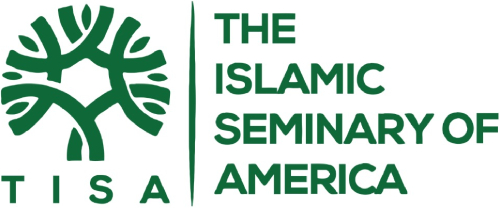
“Is he who was dead by ignorance and We gave him knowledge and set for him Light of Belief whereby he can walk amongst men; like he who is in the darkness?” (Quran; 6:122)
Indeed, the conception of knowledge (Al-Ilm) in Islam is the Guiding Light (Huda) separating right from wrong (Al furqan). Therefore, the way the sun brings light to our eyes to see the world around us, is the same way Al-Ilm is the source of guidance to see the Truth. The sacred position of knowledge in Islam is also proven by the fact that the word “science” and its derivations appear 779 times (averaging 7 times a chapter) in the Quran. This is the second only to the word “Allah.” The Chosen One (PBUH) was then selected to educate his followers and all humanity in order to erase their ignorance with knowledge. In order to highlight the importance of knowledge to humanity, the first Quranic verse sent to Prophet Muhammad (PBUH) by Allah (SWT) through Angel Gabriel started with “Read!” (Quran; 96:1-5).
“Indeed, Allah conferred a great favor on the believers when He sent among them a Messenger from among themselves, reciting to them His verses (the Quran) and purifying them and instructing them the Book (Quran) and wisdom (Sunnah), while before that they had been in manifest error.” (Quran; 3:164).
To be able to fully transmit his message, Prophet Muhammad (PBUH) first addressed the hearts to become the beloved one in order to inspire his followers to listen to his message. Secondly, in order to maximize the effects of his message that could permanently transform the behavior of people, he used a type of speech that made his followers think during his educational methods, mainly based on active learning and analogies.
Here are some of the strategies of his teaching methods:
(1) The Prophet (PBUH) would often repeat his lesson three times to the same people.
(2) He utilized analogies to enhance the imagination and curiosity of the listeners. For example, the Prophet (PBUH) asked his companions, “What would be the situation of someone who has a river at his door and every day, five times a day, he comes out and he takes a bath in that river? At the end of the day would he have any dirt on himself?” They responded, “There would be no dirt on him, O RasulAllah.” Then the Prophet said, “Similarly there are the five prayers cleansing the person in this way.”
(3) As the Prophet (PBUH) used analogy to explain a topic verbally, he also used illustration to make a point graphically. In this context, the Prophet drew a straight line through the sand and then drew lines to the right and lines to the left of the first line. Then while the people were looking attentively at the drawing, he recited the Quranic verse “And verily, this (Allah’ commandments) is My Straight Path, so follow it, and follow not (other) paths, for they will separate you away from His Path” (Quran; 6:153)
(4) On other occasions, he illustrated his point using his hand as once he said, “I and the one who takes care of the orphans are in paradise, like this (as he was speaking, he interlaced his fingers).”
(5) His teachings were also based on living experiences as opportunity to instruct. For example, The Prophet (PBUH) once was with some companions to prepare food. He asked them to slaughter a sheep. One companion said he would do that, another said he would skin it, and a third said he would cook it. Then the Messenger of Allah (SWT) replied, “I will collect wood for the fire.” They said, “No, we will do that work for you.” The Prophet (PBUH) answered, “I know that you can do it for me, but Allah (SWT) hates to see a servant of his privileged above others.” And the Prophet went and collected firewood.
(6) The Prophet at times would readdress a question to a subject that is more significant and instructive. Once a Bedouin asked the Prophet (PBUH): “When is the hour?” [The Day of Judgment]. The Prophet (PBUH) said, “What have you prepared for that final hour?” The Bedouin said, “I haven’t prepared a lot of salah (good deeds), and I haven’t prepared a lot of zakah (charity), but I am preparing one thing which is my love for Allah (SWT) and His messenger.” The Prophet (PBUH) replied: “You will be with who you love.”
SOURCE: IslamicCity.org
